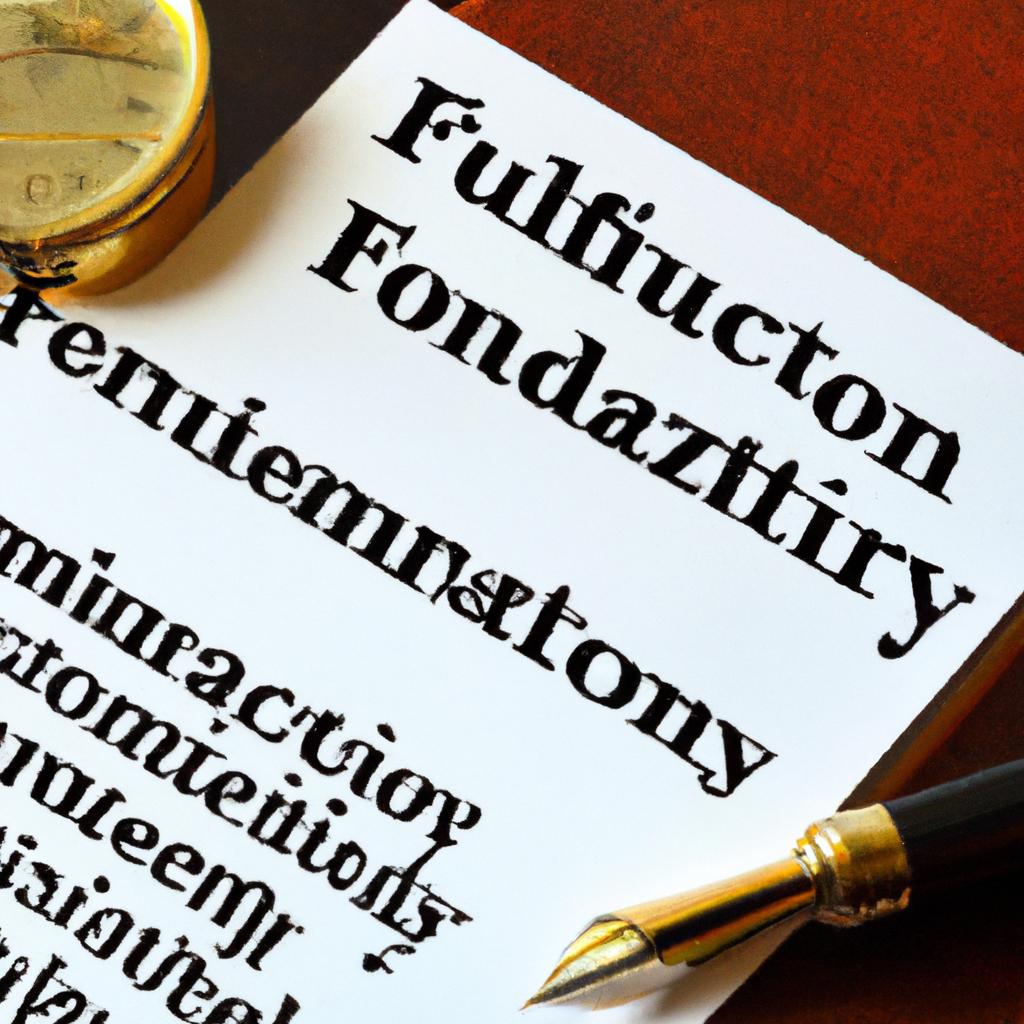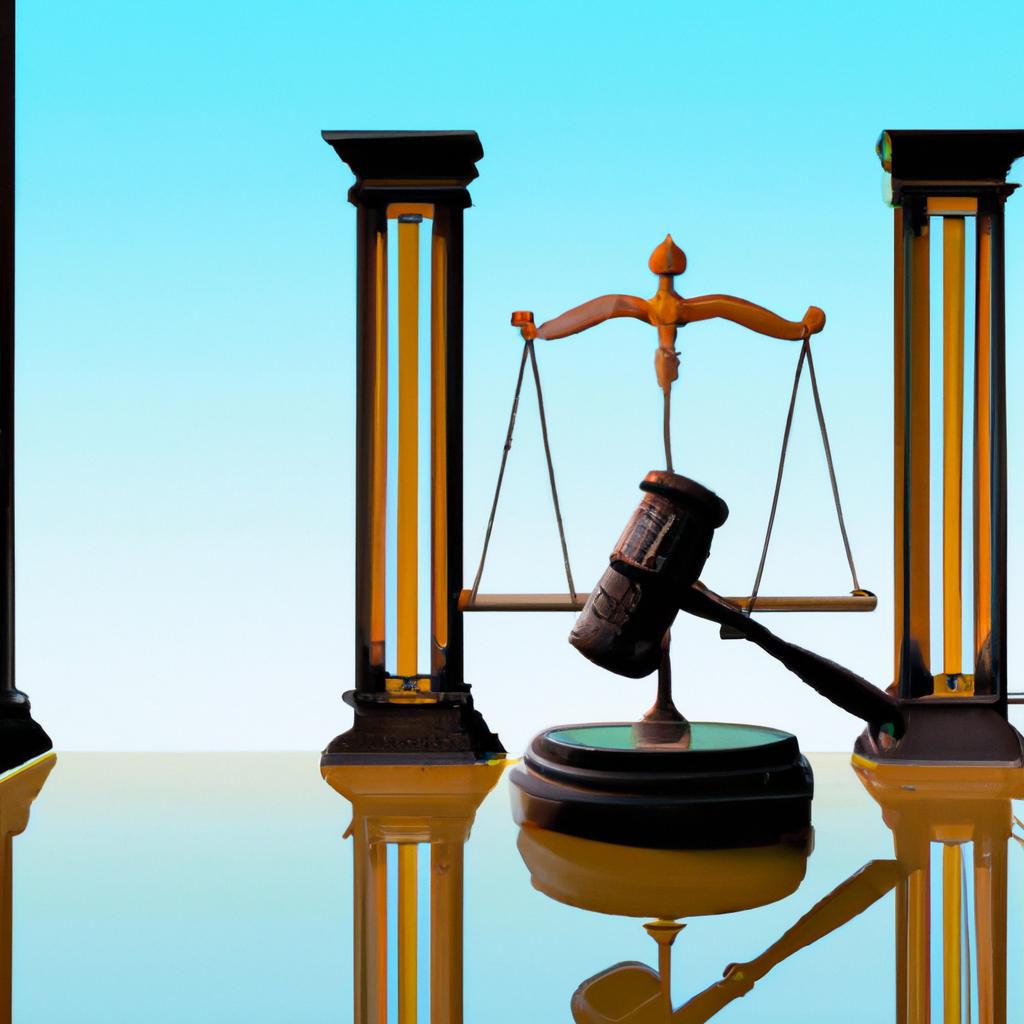As the steward of a deceased individual’s final wishes, the role of an executor of a trust is paramount in ensuring the smooth and efficient distribution of assets according to the terms set forth in the trust document. In this article, we delve into the intricacies of the duties and responsibilities that come with being an executor, shedding light on the crucial tasks that must be carried out with precision and diligence. Join us as we explore the essential functions of an executor of a trust, guiding you through the complex landscape of estate administration with clarity and expertise. Welcome to Morgan Legal Group, your trusted partner in estate planning and probate matters.
Key Responsibilities of a Trust Executor
When it comes to the , there are several important duties that must be carried out with precision and care. An executor is entrusted with managing the affairs of a trust and ensuring that the wishes of the deceased are carried out in accordance with the terms of the trust document.
Some of the primary responsibilities of a Trust Executor include:
- Managing Assets: The executor is responsible for safeguarding, managing, and distributing the assets held in the trust.
- Communicating with Beneficiaries: Keeping beneficiaries informed about the status of the trust and any distributions that may be made to them.
- Resolving Disputes: Handling any disputes that may arise among beneficiaries or other parties involved in the trust.

Navigating the Complexities of Trust Administration
When it comes to the role of an executor of a trust, there are a number of important responsibilities that must be carried out with precision and care. One of the primary duties of an executor is to ensure that the trust is administered in accordance with the wishes of the grantor as outlined in the trust document. This means managing and distributing assets to beneficiaries in a timely manner, while also ensuring that any debts or taxes owed by the trust are settled.
Additionally, the executor is responsible for handling any legal proceedings that may arise during the trust administration process, such as disputes among beneficiaries or challenges to the validity of the trust. They must also keep detailed records of all transactions and communications related to the trust, in order to provide a transparent and accurate account of their actions. In essence, the executor acts as a fiduciary for the trust, making decisions that are in the best interests of the beneficiaries and upholding the integrity of the trust.

Understanding the Legal Duties and Fiduciary Obligations
As an executor of a trust, you hold a crucial role in managing and distributing assets according to the terms of the trust document. Your primary responsibilities include:
- Administering the trust: This involves managing the trust’s assets, paying bills, filing taxes, and ensuring all distributions are made in accordance with the trust’s instructions.
- Communicating with beneficiaries: Keeping beneficiaries informed about the trust’s progress, addressing their concerns, and providing them with regular updates are essential duties of an executor.
| Responsibility | Description |
|---|---|
| Asset Management | Managing trust assets such as investments, properties, and personal belongings. |
| Tax Filing | Ensuring all necessary tax returns are filed on time and accurately. |
Additionally, you are obligated to act in the best interests of the beneficiaries and adhere to the fiduciary duties imposed by the law. This includes:
- Prudent investment: Making investment decisions that are reasonable, diversified, and in line with the trust’s objectives.
- Confidentiality: Maintaining the confidentiality of trust-related information and refraining from disclosing sensitive details to unauthorized parties.

Effective Strategies for Fulfilling Executor Responsibilities
As an executor of a trust, you hold a significant role in ensuring that the wishes of the trust creator are carried out properly. One effective strategy for fulfilling your responsibilities is to familiarize yourself with the terms of the trust document. This includes understanding the assets included in the trust, the beneficiaries designated, and any specific instructions outlined by the trust creator.
Another important strategy is to maintain accurate and detailed records of all transactions and communications related to the trust. This includes keeping track of income, expenses, distributions, and any correspondence with beneficiaries or professionals involved in the administration of the trust. By staying organized and transparent in your actions as an executor, you can help protect the interests of the trust and avoid potential conflicts or disputes.
Q&A
Q: What does an executor of a trust do?
A: An executor of a trust is responsible for managing the assets and ensuring that the wishes outlined in the trust document are carried out.
Q: What are some of the specific duties of an executor?
A: Some of the duties of an executor include distributing assets to beneficiaries, paying debts and taxes, and managing any ongoing investments.
Q: How does an executor ensure that the trust is handled properly?
A: An executor must follow the guidelines set forth in the trust document and make decisions that are in the best interest of the beneficiaries.
Q: What happens if an executor does not fulfill their duties?
A: If an executor does not fulfill their duties, they may be removed from their role and a new executor may be appointed by the court.
Q: Can the beneficiaries of a trust challenge the decisions of an executor?
A: Yes, beneficiaries have the right to challenge the decisions of an executor if they believe that the executor is not acting in accordance with the trust document.
Concluding Remarks
In conclusion, the role of an executor of a trust is one that requires careful attention to detail, thorough organization, and a clear understanding of the wishes and intentions of the trust creator. From managing assets to communicating with beneficiaries, the executor plays a crucial role in ensuring that the terms of the trust are carried out effectively and efficiently. By fulfilling their duties with diligence and integrity, the executor not only honors the trust creator’s legacy but also helps provide peace of mind to those who stand to benefit from the trust. Overall, serving as an executor is a significant responsibility, but one that can be immensely rewarding when carried out with diligence and care.


